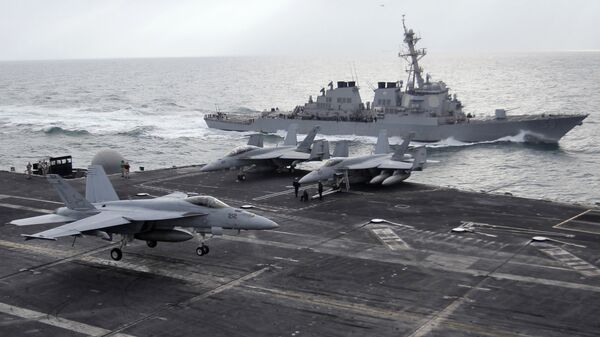"We have learned this from media reports. We certainly call on all the sides to show restraint. We would certainly prefer not to see any steps that could introduce additional escalation to the region that is already not calm," Peskov told reporters.
Meanwhile, Russian Deputy Foreign Minister Sergey Ryabkov said on Tuesday that Washington's plans to build up its military presence in the Middle East as means of putting pressure on Iran can only be seen as an intention to provoke war in the region.
"Now, when we are witnessing continuing US attempts to increase political, psychological, economic and military pressure on Iran, such actions are quite provocative, I think. They cannot be viewed otherwise than a policy to provoke a war," Ryabkov told reporters.
According to the diplomat, Moscow assumes that Washington has not yet made a final decision on sending additional forces to the region, but if it does, the move will increase the risk of regional tensions.
"Firstly, we suppose that the final decision on the format of possible extra deployments of US forces to the region has not been made yet, as there are only preliminary leaks and some public signals ... This is a matter of serious concern for us. Not only because the concentration of large forces and equipment increases risk of clashes and some undesirable aggravations, but also from the point of view of our lack of a clear understanding of what Washington is heading towards," the deputy minister said.
Ryabkov also noted that if Washington did not want to unleash a war with Iran, it must abandon its plans to increase military presence in the Middle East.
Acting US Secretary of Defense Patrick Shanahan announced on Monday that the United States would deploy 1,000 additional troops to the Middle East following the recent attacks on oil tankers in the Gulf of Oman, which Washington had put the blame on Iran for.
The US and Iran have experienced a dramatic downturn in relations after President Trump withdrew the United States from the 2015 Joint Comprehensive Plan of Action in May 2018, in a move slammed by other signatories of the agreement. Washington then proceeded to impose sanctions against Iran.
A year after the US pullout, Iran announced that it would partially suspend its obligations under the agreement.


